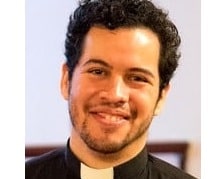In exile you train yourself to contemplate and admire what is not yours.
Mahmoud Darwish, In the Presence of Absence (2006)
I have been thinking, talking, and preaching about the prophet Jeremiah a lot lately. He’s my prophet of the season, you might say.
What I find most intriguing about his work—prolific, by the way; one of the longest compendiums of prophetic writings in the Old Testament—has to do with the moment of history he occupies. The people of Israel are experiencing the chaos of exile. Far from their homeland and among the people that took them captive, they are trying to make sense of how they got there in the first place.
What Jeremiah offers them is rife with judgment, of course, fitting of a prophet calling the people of Israel to account—“Reform your ways and your actions, and I will let you live in this place. Do not trust in deceptive words and say, “This is the temple of the Lord, the temple of the Lord, the temple of the Lord!”” (7:3-4). But in the midst of judgment, he also offers them hope. “Seek the welfare of the city where I have sent you into exile, and pray to the Lord on its behalf, for in its welfare you will find your welfare” (29:7).
I have been thinking about what it means to see our lives through the experience of exile lately. Those who experience exile are the type of people for whom home is primarily a desire—an unfulfilled wish, a memory of what was, or a longing for what has yet to be. Far from home, the exile must train herself “to contemplate and admire what is not [hers],” in Mahmoud Darwish’s words. She must work with what she has and learn the ways of another. She must simultaneously cope with her loss and slowly, gently learn to love anew.
Often, we expect assimilation of the person who is new to us and our way of life. We have a hard time seeing that demand for what it is. And yet what the prophet Jeremiah invites us into—what Jesus invites us into, when we join the crowd of Christ-followers throughout history—is a way of life where that demand is placed upon us, not the stranger: what if you approached those deemed strange and unfamiliar with the same kind of “admiration and contemplation” that the person living in exile has to muster? What if you met the stranger with that kind of curiosity—the kind that assumes that your survival depends on learning their ways, not the other way around?
I long for a church that admires and contemplates those we deem strange with the same fervor that we demand it of them. May we embody that in the way we talk to one another and in the way we act toward each other. And may we be drawn into that holy dance of strangers, the Body of Christ—a great cloud of witnesses that is still learning how to be and how to love together.
— Fr. Javier

Additional Resources:
Watch a recording of Fr. Javier’s first Fall forum on the Prophet Jeremiah on St. Paul’s YouTube channel, or tune in to the second part of the series on Sunday, October 4 by registering here.

